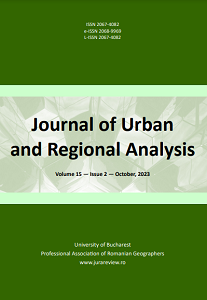WHERE THE NORTH-SOUTH GAP IN HUMAN CAPITAL BEGINS: AN ANALYSIS OF EDUCATIONAL OUTCOMES ACROSS THE ITALIAN REGIONS
WHERE THE NORTH-SOUTH GAP IN HUMAN CAPITAL BEGINS: AN ANALYSIS OF EDUCATIONAL OUTCOMES ACROSS THE ITALIAN REGIONS
Author(s): Paola Nardone, Iacopo Odoardi, Assia Liberatore, Dario D’IngiulloSubject(s): Regional Geography, Human Resources in Economy, Socio-Economic Research, Sociology of Education
Published by: Editura Universitară
Keywords: student achievement gaps; scholastic performance; human capital; Italian regions;
Summary/Abstract: Promoting education is a priority for most of the world’s governments, but, in some cases, beneficial access to school curricula and student achievement is influenced by the socioeconomic background. We investigate the influence of many aspects of the Italian socioeconomic background on school achievement, specifically on mathematical capabilities, at two school levels (primary and secondary) by using regional data over the period 2013-2019. Italy is a country with a solid scholastic tradition that, especially in the past, had a strong imprint mainly of humanistic and social culture. Investments are currently being made in human capital (HC), particularly in the scientific, mathematical and computer fields; however, the results vary according to region. The results show that in the central-northern regions, a virtuous circle of HC enrichment can be triggered, while in the southern regions, economic support is necessary. In addition, we observe that a sort of family safety net (a form of social capital) could play a positive role in sustaining the students’ learning efforts in the southern area. It seems that the different support for school education that underlies the Italian “North South problem” is one of the causes of the gap in the local levels of HC development.
Journal: Journal of Urban and Regional Analysis
- Issue Year: 15/2023
- Issue No: 2
- Page Range: 191-219
- Page Count: 29
- Language: English

